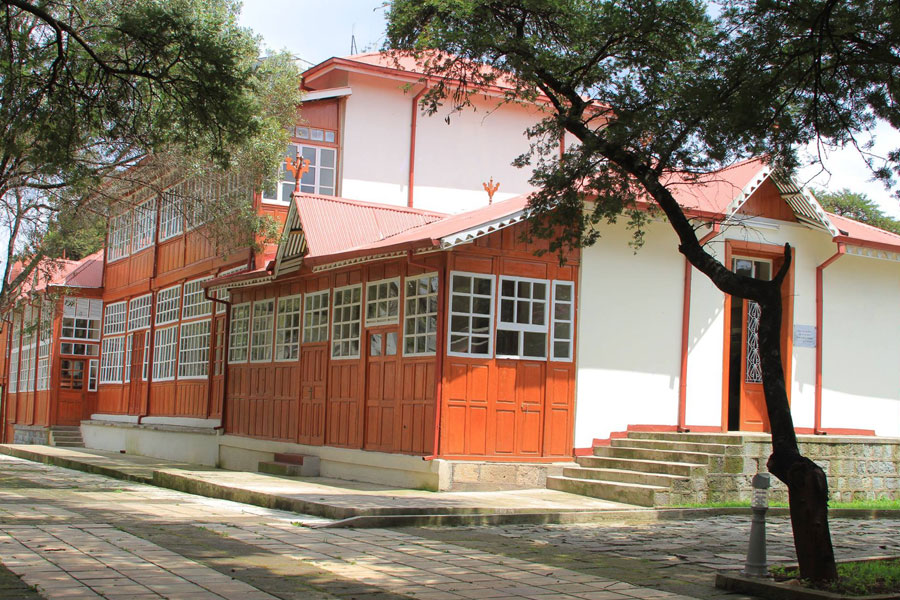
On one of the recent Saturdays, I went out with a friend for a walk. My plea for the rain heeded, we quickly paced the wet streets as though we were late from a very serious appointment. It was six o’clock in the morning.
It was a change from my usual walking hours of six o’clock in the evening. My friend had insisted and I agreed to accompany him. It is a daily feat for him. The walk’s pace immediately progressed to a run, a department in which I am no match. It was then I came to the conclusion that we would not be able to have a conversation under the circumstances. I was too out of breath, not to mention lagging far behind.
The stubborn factors that make or break athletes started to linger in my mind. First arrived were the Olympic heroes Abebe Bikila and Mammo Wolde, as I pondered whether enough books were written in local languages about their lives and achievements. Then came our elementary school days, when we took mandatory physical education (PE) courses as a subject every semester. Nothing used to happen during classes, and many considered them recess time. To our surprise, we also took PE during college freshman semester as a compulsory course. The courses made one thing clear; athletics is for those who endure its vagaries.
If somebody is involved in a certain kind of sport, other than athletics, one could most certainly guess where they reside in Addis Abeba, or how close one’s residence is to sports’ centres or playing fields. Of course, soccer is for everyone, regardless of whether any facilities are available. Everybody, at least boys, tries their hand at soccer, although few become professional players.
The next topic that brought headache, combined with the cold, during my morning walk-cum-run was the result of the World Athletics Championship, which was held in Oregon, United States. The flow of medals for Ethiopia was there, which finished second by dominating long-distance track and marathon, especially in the women’s grouping. However, it was a win at an event that was not anticipated, as admitted by athletics officials. Sure, the national team’s under-20 performance at Cali, Columbia, was also reassuring. Yet, something continued to nibble away at me.
As there are positives to becoming more competitive in the middle distances, what has been considered our home turf, long-distance track, is slipping away, especially in the male lineup. More and more athletes around the world in the long distances are becoming world-class. It is not only the Kenyans or the Eritreans these days but the Europeans as well that have Africans by origin competing under their flags.
Many athletes have gone as many are coming and more are certainly going, and things are going to get tougher. There is no question about it. It looks like we have to be prepared for the worst instead of mediocrity and triviality-laden self-satisfaction or complacency the events enjoy here. The way most accomplished athletes were beaten suggests that there is overwhelming pressure coming from up-start countries in the long-distance arena. They have their sights on the Olympics beyond the World Athletics Championship.
What is at stake is not only losing world-class runners but enthusiasm for the race as a whole. A lot of work needs to be done to identify and develop talent from a young age. Beyond that, it needs to be a national effort to retain potential athletes in the country. It is not just a brain drain we are facing but also a talent drain (not that athletes are not savvy, with skills they have demonstrated in business). It takes a special disposition to brave the cold or the sun; those of us that take part in morning runs once in a while know all too well.
PUBLISHED ON
Aug 27,2022 [ VOL
23 , NO
1165]


Commentaries | Jan 03,2021

Commentaries | Apr 22,2022

Verbatim | May 11,2019

View From Arada | Jun 13,2020

Editorial | Jul 10,2020

View From Arada | Nov 14,2020

View From Arada | Aug 05,2023

Commentaries | Apr 28,2024

View From Arada | Apr 26,2025

Viewpoints | Sep 03,2022

Dec 22 , 2024 . By TIZITA SHEWAFERAW
Charged with transforming colossal state-owned enterprises into modern and competitiv...

Aug 18 , 2024 . By AKSAH ITALO
Although predictable Yonas Zerihun's job in the ride-hailing service is not immune to...

Jul 28 , 2024 . By TIZITA SHEWAFERAW
Unhabitual, perhaps too many, Samuel Gebreyohannes, 38, used to occasionally enjoy a couple of beers at breakfast. However, he recently swit...

Jul 13 , 2024 . By AKSAH ITALO
Investors who rely on tractors, trucks, and field vehicles for commuting, transporting commodities, and f...

Jun 28 , 2025
Meseret Damtie, the assertive auditor general, has never been shy about naming names...

Jun 21 , 2025
A well-worn adage says, “Budget is not destiny, but it is direction.” Examining t...

Jun 14 , 2025
Yet again, the Horn of Africa is bracing for trouble. A region already frayed by wars...

Jun 7 , 2025
Few promises shine brighter in Addis Abeba than the pledge of a roof for every family...